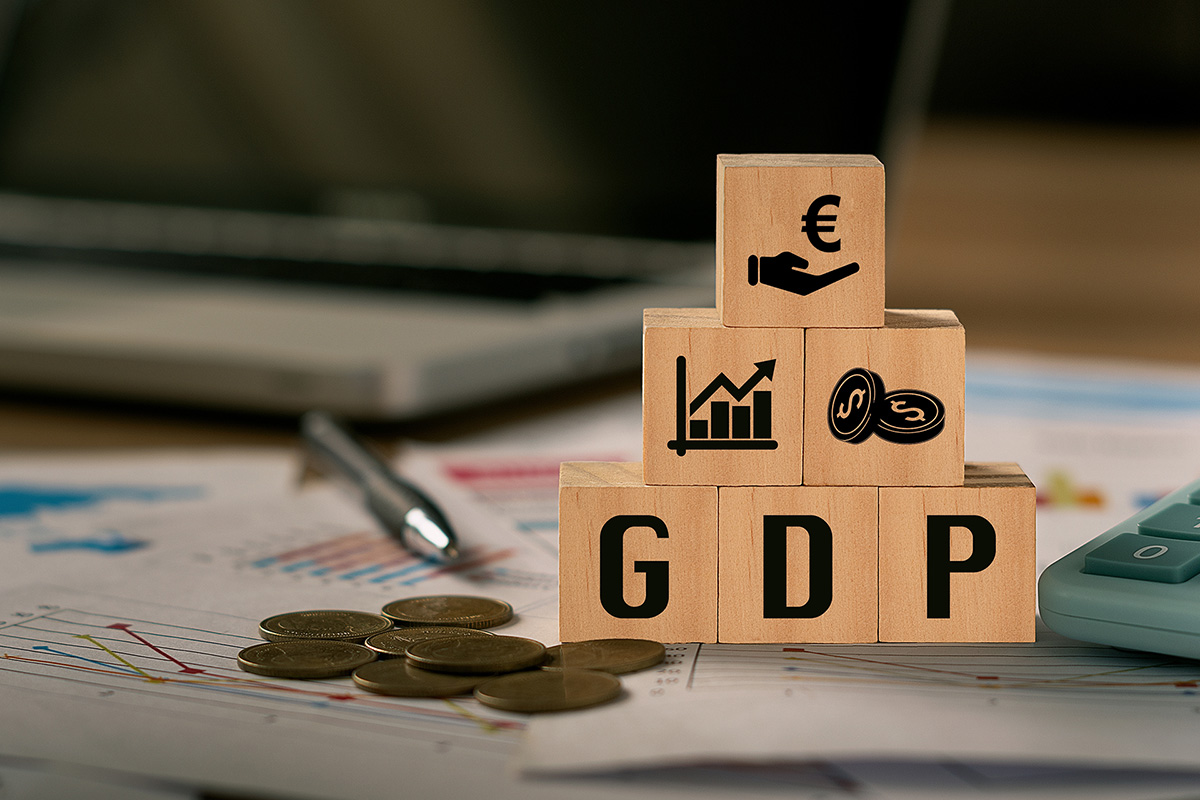

Finance
How To Find Gross Investment
Modified: February 21, 2024
Learn how to find gross investment in finance, including the calculation method and key factors to consider.
(Many of the links in this article redirect to a specific reviewed product. Your purchase of these products through affiliate links helps to generate commission for LiveWell, at no extra cost. Learn more)
Table of Contents
Introduction
When it comes to managing your finances, understanding the concept of gross investment is crucial. Whether you are an individual planning for retirement or a business owner looking to expand, knowing how to find gross investment can greatly impact your financial decision-making. Gross investment is a term commonly used in finance and economics to represent the total amount of money invested in a particular asset or project, before taking into account any depreciation or other expenses.
In this article, we will explore the definition of gross investment, discuss its importance, and highlight the factors that can affect it. Additionally, we will delve into various methods you can utilize to find gross investment accurately. Whether you are a seasoned investor or a novice in the world of finance, this article aims to provide you with a comprehensive guide to understanding and calculating gross investment.
By gaining a clear understanding of gross investment, you will be equipped with the knowledge to make informed financial decisions and optimize your investment strategies. So, let’s get started by examining the definition of gross investment in more detail.
Definition of Gross Investment
Gross investment refers to the total amount of money invested in a particular asset, project, or economy. It represents the initial capital expenditure made by individuals, businesses, or governments, without accounting for any subsequent deductions or expenses. Gross investment captures the total value of investment made, including both tangible and intangible assets, such as buildings, equipment, research and development, and intellectual property.
This concept is essential in finance and economics as it provides valuable insights into the level of investment activity in an economy or the growth potential of a particular asset or project. By understanding gross investment, individuals and businesses can assess the attractiveness of investment opportunities and evaluate the overall health of an economy.
Gross investment is different from net investment, which takes into account the depreciation or wear and tear of assets over time. While gross investment represents the total amount invested, net investment deducts the depreciation from the gross investment to calculate the net increase in the value of capital stock.
It’s important to note that gross investment encompasses both the additions to the existing capital stock and the replacement of any damaged or obsolete assets. This distinction is critical in assessing the overall investment activity and its impact on economic growth and productivity.
Overall, understanding the definition of gross investment serves as a foundation for analyzing and evaluating investment decisions. It provides a clear perspective on the capital invested and sets the stage for further analysis of the factors affecting gross investment.
Importance of Understanding Gross Investment
Understanding gross investment is essential for individuals, businesses, and governments alike. It provides valuable insights into the level of investment activity and can help guide financial decision-making. Here are some reasons why it is crucial to have a firm grasp on the concept of gross investment:
- Assessing Economic Growth: Gross investment serves as a key indicator of an economy’s growth potential. A higher level of gross investment indicates increased investment activity, which can lead to the expansion of industries, job creation, and overall economic development. By monitoring gross investment, policymakers and economists can evaluate the effectiveness of economic policies and identify areas that require attention to stimulate investment.
- Identifying Investment Opportunities: For individual investors or businesses, understanding gross investment can help in identifying lucrative investment opportunities. By evaluating the gross investment in a specific industry or project, investors can gauge the level of capital inflow and the potential for returns. This knowledge allows them to make informed decisions about allocating their financial resources and maximizing their investment returns.
- Evaluating Financial Performance: Gross investment is a key component for assessing the financial performance of businesses. It provides insights into the amount of capital expenditure made by a company, which directly impacts its asset base and productivity. By comparing the gross investment of a company over time or against industry benchmarks, stakeholders can evaluate the effectiveness of their investment strategy and determine the company’s growth prospects.
- Planning for the Future: Understanding gross investment is crucial for long-term planning. Whether it’s retirement planning for individuals or strategic planning for businesses, having a clear picture of the amount of capital invested is imperative. Gross investment allows individuals and businesses to assess their financial health, set realistic goals, and develop effective strategies to achieve them.
- Economic Policy Formulation: Governments rely on the understanding of gross investment to formulate economic policies. By analyzing gross investment trends, policymakers can design policies that incentivize investment, attract foreign capital, and stimulate economic growth. Additionally, they can identify sectors that require targeted interventions to boost investment and foster overall economic development.
Overall, understanding gross investment is vital as it provides a comprehensive view of investment activity and its implications. It empowers individuals, businesses, and governments to make informed financial decisions, identify opportunities, and plan for a prosperous future.
Factors Affecting Gross Investment
Several factors can significantly impact the level of gross investment in an economy or within a specific sector. Understanding these factors is crucial for assessing the investment climate and making informed financial decisions. Here are some key factors that influence gross investment:
- Economic Conditions: The overall economic conditions, such as GDP growth, inflation rate, and interest rates, play a significant role in affecting gross investment. During periods of economic expansion and favorable monetary policies, businesses and individuals are more likely to invest in new projects and assets. Conversely, during economic downturns or high-interest rate environments, the level of gross investment may decrease as investors adopt a more cautious approach.
- Technological Advancements: Technological advancements have a profound impact on gross investment. New technologies often create opportunities for businesses to invest in research and development, machinery, and equipment to enhance productivity and gain a competitive edge. Industries that embrace technological innovations are more likely to see higher levels of gross investment as they strive to stay at the forefront of their respective fields.
- Government Policies: Government policies can have both direct and indirect effects on gross investment. Policies that promote investment, such as tax incentives, subsidies, and deregulation, can encourage businesses and individuals to invest more. Conversely, policies that impose heavy regulations or increase taxes may discourage investment. Therefore, governments have a significant role in shaping the investment climate and influencing the level of gross investment in an economy.
- Business Confidence: The level of business confidence can impact gross investment decisions. When businesses are optimistic about the future prospects of an industry or the overall economy, they are more likely to invest in new projects, expand their operations, and acquire new assets. Positive market sentiment can create a ripple effect, attracting more investment and stimulating economic growth.
- Availability of Financing: Access to financing options, such as bank loans, venture capital, or public funding, can impact gross investment. If businesses or individuals face difficulties in obtaining financing, it can hinder their ability to invest in new projects or acquire assets. Conversely, easy access to affordable capital can spur investment activity and drive the level of gross investment higher.
- Political Stability: Political stability is crucial for attracting both domestic and foreign investment. Uncertainty and instability in the political landscape can create a sense of risk and deter investors. On the other hand, countries with stable political environments are more likely to attract higher levels of gross investment as investors have confidence in the long-term stability and predictability of the country’s economic policies.
These factors are interconnected and can have a combined impact on the level of gross investment. Monitoring these factors and understanding their influence is essential for accurately assessing investment opportunities and making informed financial decisions.
Methods for Finding Gross Investment
Calculating gross investment requires a systematic approach and accurate data. Fortunately, several methods can help individuals, businesses, and analysts find the gross investment accurately. Here are some common methods used for calculating gross investment:
- Financial Statements: Financial statements, such as the balance sheet and income statement, provide valuable information for finding gross investment. The balance sheet displays the value of fixed assets, such as property, plant, and equipment, which represents the initial capital expenditure. The income statement shows the depreciation expense, allowing for the calculation of net investment by deducting the depreciation from gross investment.
- Capital Expenditure Tracking: Monitoring capital expenditures is an effective way to find gross investment. By keeping track of all spending on acquiring or upgrading assets, businesses can calculate their total investment. This includes costs related to purchasing new machinery, renovating buildings, or developing infrastructure.
- Government Reports: Governments often publish reports and statistics on investment activity. These reports provide information on the level of capital expenditure in various sectors of the economy. Analyzing government reports can help individuals and businesses gain insights into overall gross investment trends and identify potential investment opportunities.
- Industry Research: Conducting industry-specific research can also assist in finding gross investment. Analyzing market trends, industry reports, and investment surveys can provide valuable data on the level of investment in a particular sector. This research can help individuals and businesses gauge the investment climate and make informed decisions.
- Consulting Financial Professionals: Seeking advice from financial professionals, such as accountants or investment advisors, can be beneficial in finding gross investment. These experts have the knowledge and tools to accurately calculate and analyze investment data. They can provide insights, assist with financial analysis, and ensure accurate reporting of gross investment.
- Using Financial Software: Utilizing financial software or investment tracking tools can streamline the process of finding gross investment. These tools often provide features to record capital expenditures, calculate depreciation, and generate comprehensive investment reports. By leveraging financial software, individuals and businesses can automate and simplify the calculation of gross investment.
While these methods may vary in accuracy and complexity, combining multiple approaches can provide a more comprehensive understanding of gross investment. It is essential to ensure the accuracy and reliability of data sources and calculations to make informed financial decisions based on the calculated gross investment values.
Conclusion
Understanding gross investment is essential for individuals, businesses, and governments alike. It provides valuable insights into the level of investment activity and serves as a foundation for making informed financial decisions. By grasping the concept of gross investment and utilizing the methods discussed in this article, individuals and businesses can accurately calculate and analyze their investment levels.
Gross investment allows individuals to identify attractive investment opportunities, evaluate their financial performance, and plan for the future effectively. For businesses, a solid understanding of gross investment is crucial for strategic planning, assessing industry trends, and making informed investment decisions.
Factors such as economic conditions, technological advancements, government policies, business confidence, availability of financing, and political stability all influence gross investment. It is important to monitor these factors and understand their impact to accurately assess the investment climate and make informed financial decisions.
Various methods, such as analyzing financial statements, tracking capital expenditures, consulting financial professionals, utilizing financial software, and conducting industry research, can help individuals and businesses find gross investment accurately. By leveraging these methods, individuals and businesses can effectively calculate and analyze their investment levels, aiding in decision-making and optimizing their investment strategies.
In conclusion, understanding and calculating gross investment is a vital step in managing finances and evaluating investment opportunities. By incorporating the knowledge gained from this article into financial planning and decision-making processes, individuals and businesses can navigate the complex world of investments with confidence and increase their chances of achieving their financial goals.














